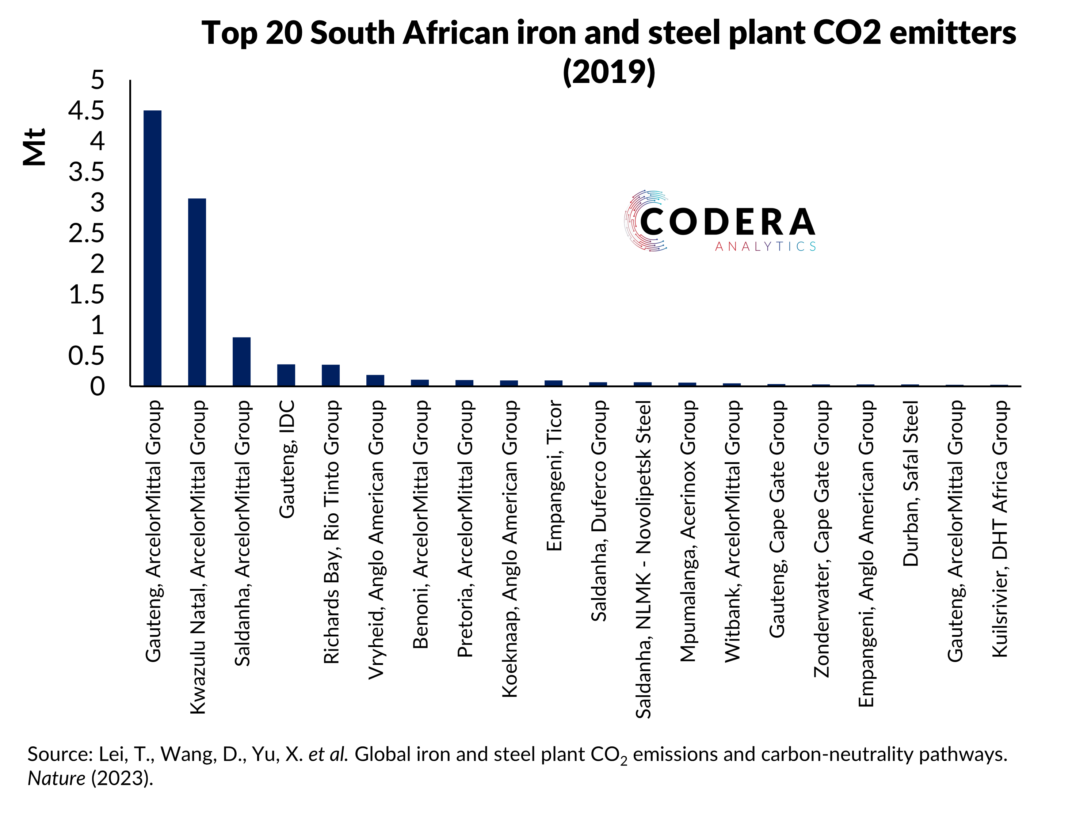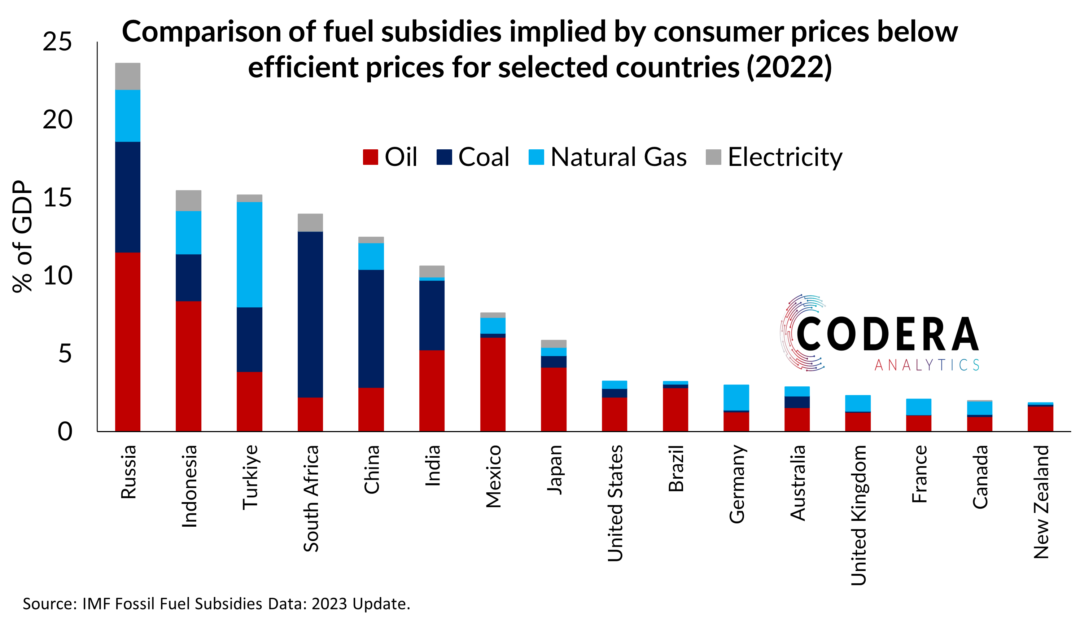This paper from Oxford Economics estimates the long-term macroeconomic effects of climate change and predicts that South Africa’s GDP per capita will be -21.4% below baseline levels in 2050 under a scenario of 2.1°C of warming (physical risks only) increasing to -48.5% below baseline if other shocks are included in the model. The baseline scenario is based on Oxford Economics’ current long-term forecast at present temperature levels. South Africa’s estimates are higher than the estimates for the global economy, for which global output is predicted to fall by 30% (under a scenario of warming of 2°C by 2050, i.e. close to the IPCC’s ‘best estimate’ of warming under a high emissions scenario).
As the paper does not provide its country-level baseline projections, let us use an example to demonstrate the implications of the estimates. South Africa is one of only a small number of large economies that have experienced a decline in GDP per capita since 2010, and the IMF expects this to be the case for the next 5 years. Assuming, optimistically, that long-term per capita could turn positive and rise to 0.5% over the long run, the estimates would imply South Africa’s growth rate would fall to between 0.26 and 0.39 percent, for example. Note that it can be quite difficult to compare such estimates across studies owing to differences in forecast horizon, temperature scenarios and other assumptions, but you can find summaries of other estimates for South Africa here, here and here.
Estimates such as these appear to be large when considered in isolation. But for a country like South Africa, which has experienced no per capita income growth for over a decade, the potential growth-reducing impacts of climate change are likely smaller than those from our existing macroeconomic and social challenges. Think electricity load-shedding, corruption or crime.
Its worth reiterating this from an earlier post:
‘addressing the current constraints to South Africa’s economic and employment growth would likely score much higher in cost-benefit analysis of which policies to prioritise to improve long term prosperity. For a developing country like South Africa, the present value benefits of improving welfare through job creation or improving service delivery and the functioning of our state through governance reforms now would produce future benefits that would be much larger than these estimates of even the worst case impacts of climate change.
This is not to say that society should not take action to reduce climate change and mitigate its impacts. We need to recognise that making decisions about how to spend society’s resources over the very long term involve a variety of complex economic, social and ethical considerations that need to be weighed up. Policymakers must look not just at the future costs of expected outcomes when thinking about which policies to pursue, they must compare expected costs and benefits of different policy options in present value terms to enable them to assess policy interventions on a common basis.’

